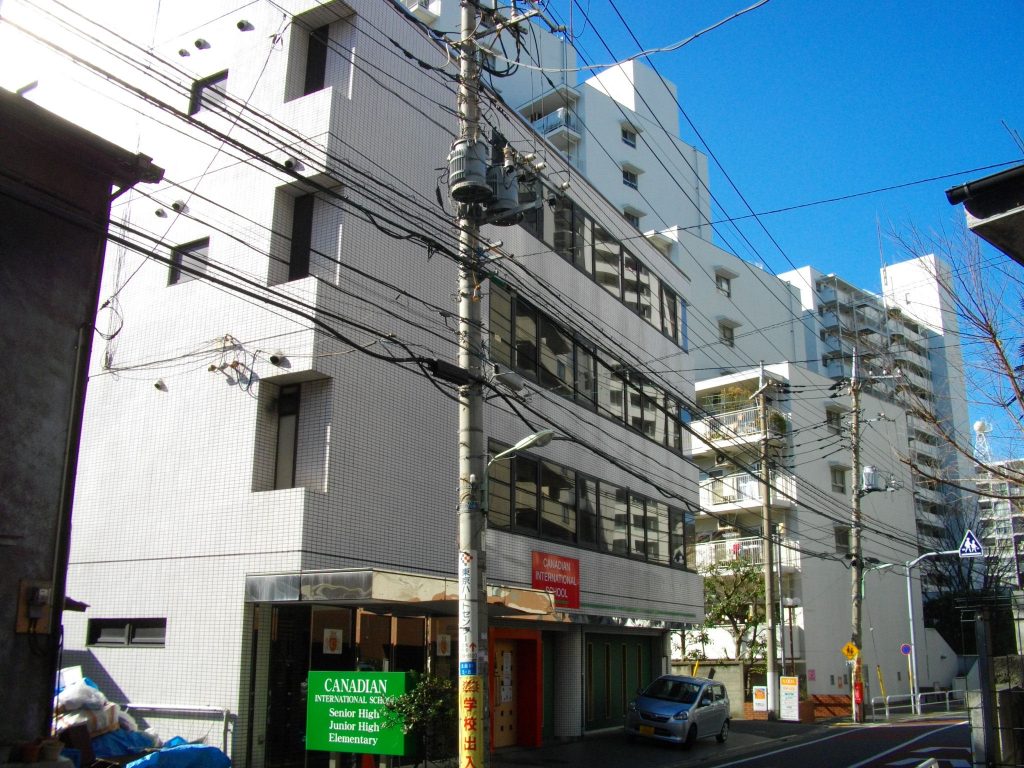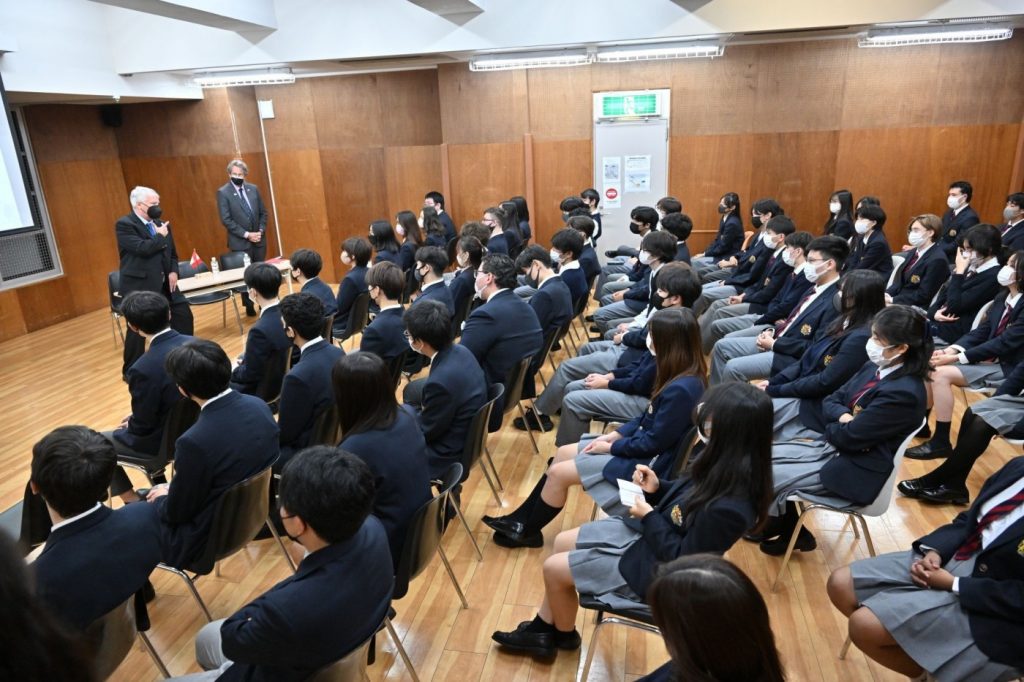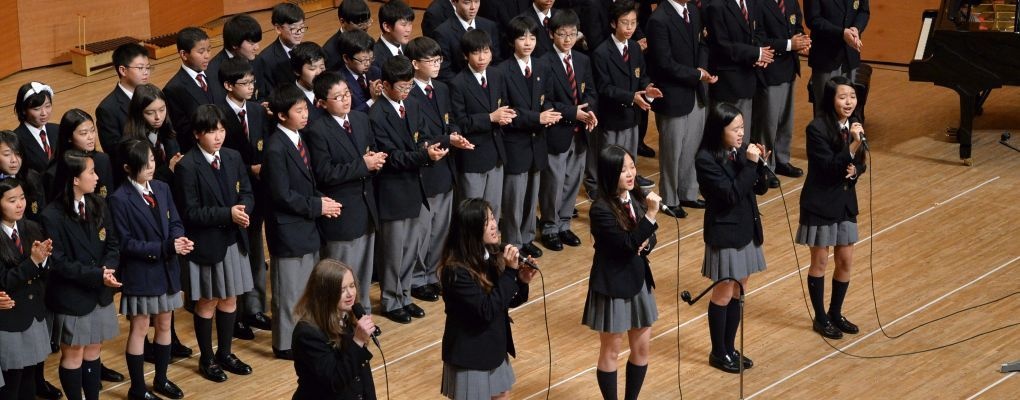Canadian International School (CIS) Review

The Canadian International School in Tokyo is a Canadian curriculum international school in Shinagawa, Tokyo. The school was established in 2000 with 50 students and has grown over the years to its current student population of 330. The school follows a Canadian curriculum and all teachers, despite nationality, are required to hold professional teacher certification in Canada.
CIS’s is accredited in Canada anually with omsite inspection by the Department of Education of Prince Edward Island, in the USA by the Western Association of Schools and Colleges (WASC) and in Europe by the International Baccalaureate Organization (IBO). The school is recognized in Japan by the Ministry of Education, Culture, Sports, Science and Technology.

Admissions
Applicants to Kindergarten and grade 1 will attend an informal interview with teachers where their level of spoken English, number, letter, colour and shape recognition, and ability to print their name will be assessed. Applicants up to grade 1 normally adapt to their new language very easily and quickly and are rarely refused a place, since they are dealing with the basics – letter and number recognition, common phrases, printing and simple addition and subtraction.
Children entering grades 2 to 5 are expected to have sufficient understanding of English to be able to understand a teacher well, and should be able to read at or close to grade level. The International Baccalaureate Primary Years Programme (PYP) is used to teach the Canadian curriculum, and students are engaged in their own learning on a daily basis, requiring good verbal and written communications skills. The entrance test for grades 2 to 5 covers English and arithmetic, and there is a personal interview with the student and his or her parents and the principal, conducted in English. If necessary, language support is available to assist students in these grades. CIS does not have a separate ESL stream. Students are placed in a regular class according to their date of birth, and a language support team works with students in the classroom to the extent necessary.
Students applying to enter Middle School (grades 6 to 8) are expected to have studied English in their previous school to a level where they can understand the teacher, contribute to class discussions, ask their own questions and be able to read the various textbooks independently. Homework is an important part of the curriculum, and students are expected to complete research projects and to solve math word problems in their own time. Limited language support is available for middle school students.
Students applying to enroll in grades 9 through 12 are expected to be fluent in English. The senior school curriculum is demanding, and students must have a high level of spoken and written ability as well as the ability to comprehend the written word. Class discussion, extensive reading of magazine articles and texts, and several hours of homework each day are part of the programme of studies in all academic subjects; a high level of English is therefore a necessity. In order to graduate from CIS, grade 12 students must satisfy the English language requirements of the Department of Education of the Canadian province of Prince Edward Island, whose curriculum CIS teaches. There is no language support for students in grades 9 to 12.

Education and Extracurriculars
CIS employs a model for preschool and kindergarden education based on the belief that learning and playing in an enriched environment from a young age will give students opportunities to realize their potential in social, academic and physical needs. English language acquisition in particular is encouraged in natural ways including real life daily experiences to which students can “attach” their new language skills. The kindergarten and preschool curriculum introduced students to English language arts, mathematics, science, social studies, music, art, and physical education. Small class size provides students with greater teacher contact time and the opportunity to receive individualized guidance and academic instruction.
The Elementary School curriculum at CIS follows the International Baccalaureate (IB) Primary Years Program (PYP), a program through which students learn through a number of transdisciplinary units. Subjects include English language arts, Japanese, mathematics, science, social studies, art, music, technology education, physical education, and health. Through the program, students are encouraged to consider how subject areas are connected and how knowledge is structured, and typically demonstrate their understanding through project-based work instead of paper-and-pencil tests. In the English language arts program students are expected to achieve in areas of speaking, listening, reading, writing and viewing. The resources used include picture books, chapter books, and many other materials including an introduction of the use of technology as a learning tool. Programs in music, art and physical education also provide for the students opportunities to further develop their strengths. At CIS the importance of these programs is well recognized in the academic and personal development of students.
In the Junior High School (grades 6-8) students are exposed to science, health, mathematics, social studies, English language arts, Japanese, art, music and physical education. Technology skills are also incorporated heavily as applicable to each subject. Through English language arts students explore poetry, short stories, novels and essays, often using technology as a learning tool. Throughout the English program speaking, listening, reading, writing, viewing, and representing skills are further developed. At the junior high grade level comparisons are kept to a minimum. Students are encouraged to explore their own strengths while recognizing areas in which they need to be supported. During these years the school ensures that students participate in group and extra curricular activities providing opportunities for the development of student leadership.
During Senior High School (grades 9-12) students complete a planned sequence of core and elective courses which can be selected to reflect a student’s personal interests. Core and elective courses include English language arts, mathematics, general science, biology, chemistry, physics, history, computer studies, Japanese, music, physical education and art. Selection of certain elective subjects makes science/business and arts/business streams available as options for study. Students graduate with a Canadian academic high school graduation diploma, providing students with a credential that is valuable for admission to universities in Canada and around the world. Individual academic counseling is provided as students make their course selections and begin considering their university options.
To further diversify options and make their students more competitive, CIS offers Advanced Placement (AP®) exams in several subjects that complement the existing selection of core and elective courses. Students can choose to study for these AP® exams alongside their regular curriculum to earn college credit and/or advanced placement in many North American universities. Currently CIS offers fully accredited AP® courses in Calculus AB, English, World History, Chemistry and Physics B. CIS also offers teaching support for many other AP® subjects, allowing students to self-study for applicable exams.
Outcomes
Graduating with a Canadian (PEI) graduation certificate and various AP® scores means that many post-secondary options are available to graduating students from CIS. In recent years, CIS graduates have gone on to attend many notable universities, including:
Canada
- McGill University
- Queen’s University
- University of British Columbia
- University of Prince Edward Island
- University of Toronto
- University of Victoria
USA
- Boston University
- California State University
- George Washington University
- Northeastern University
- University of California
- University of Hawaii
- University of Michigan
- Washington University at St.Louis
Japan
- Keio University
- Sophia University
- Temple University
- Waseda University
And several other notable universities in Europe, Australia, Saudi Arabia and Korea.
The information in this report comes from the experiences of CIS students, the expertise of Tokyo Academics educators who work with students from CIS on a regular basis, The Good Schools Guide International and the Canadian International School Tokyo webpage.
AP® is a trademark owned by the College Board, which is not affiliated with, and does not endorse Tokyo Academics.
Looking for More International School Guidance?
Visit our Resource Center and gain access to recorded webinars, podcast episodes, school profiles, and more.
Academic Services
Admissions
Additional Services
Community
Contact
Call us
Email us
Visit us
Tokyo Academics
Nishiazabu 3-24-17,
Hirose Building 3F,
(above FamilyMart)
Minato, Tokyo 106-0031
Tokyo Academics
Futako Tamagawa
Tamagawa 1-9-3
LIBERLA Futako B1F
158-0094
Tokyo Academics
© Copyright 2025 Tokyo Academics | All Rights Reserved | Terms of Use | Privacy Policy
Contact
Call us
Email us
Visit us
Tokyo Academics
Nishiazabu 3-24-17,
Hirose Building 3F,
(above FamilyMart)
Minato, Tokyo 106-0031
Tokyo Academics
Futako Tamagawa
Tamagawa 1-9-3
LIBERLA Futako B1F
158-0094
Tokyo Academics
